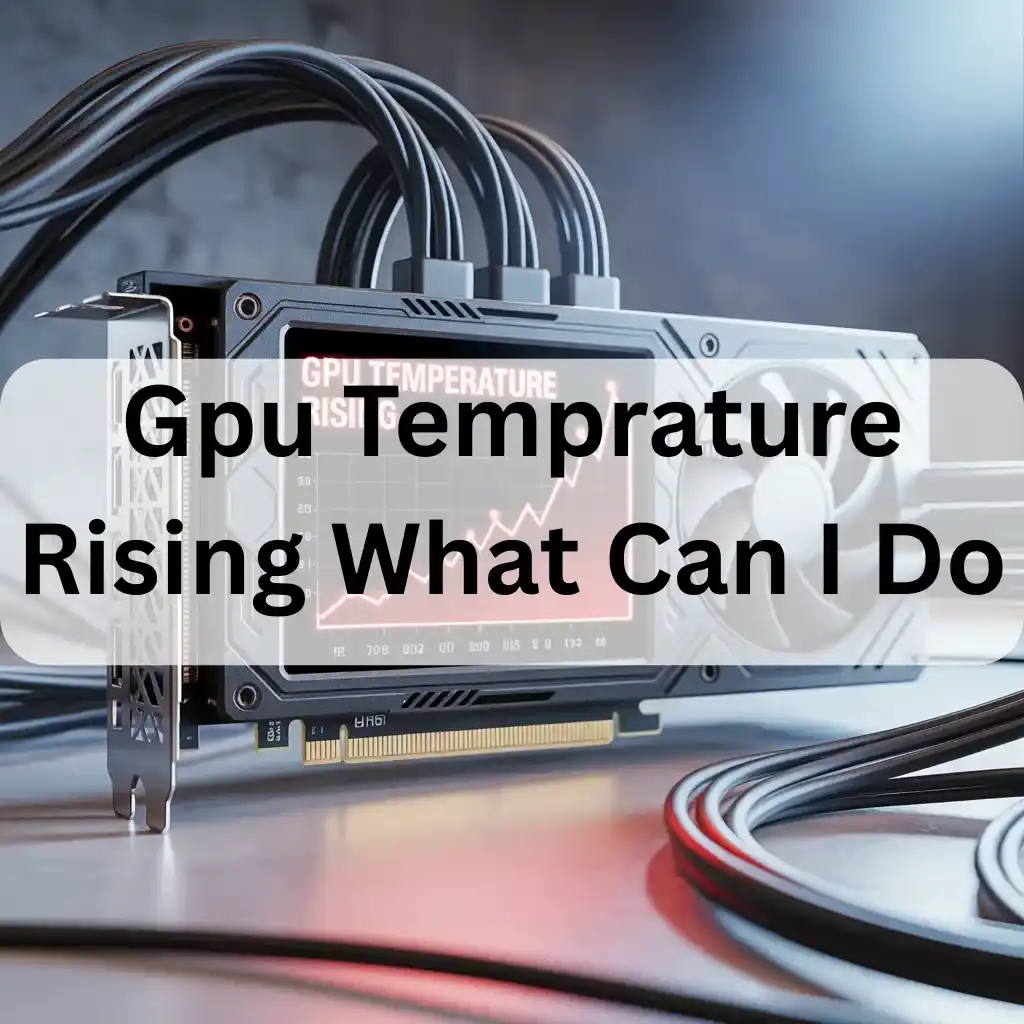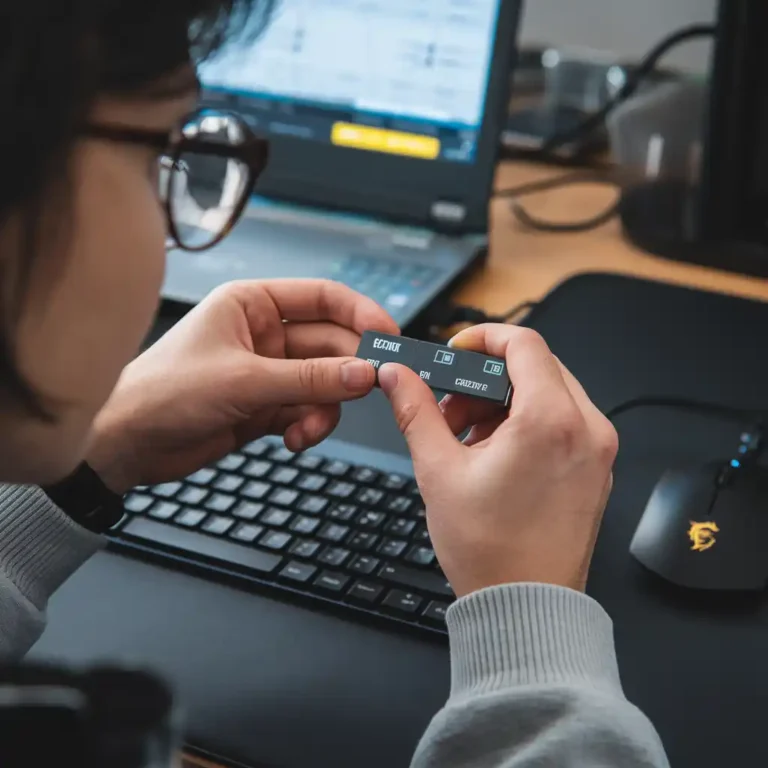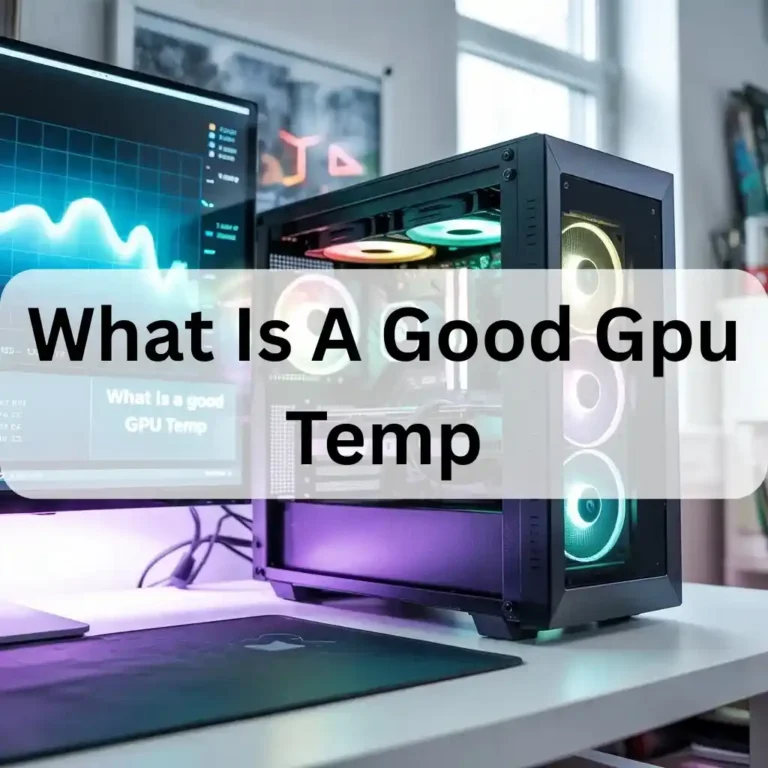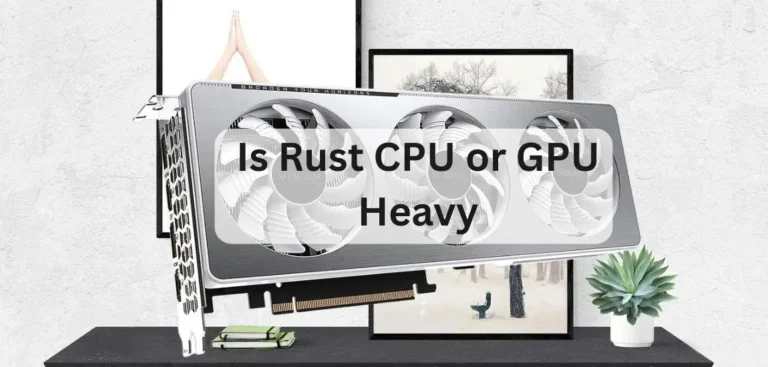Gpu Temprature Rising What Can I Do -Fix GPU Heat Now 2025!
If your GPU gets too hot, clean all the dust, ensure the fans work, and keep your room cool. You can also use software to reduce power. These tips will help cool down your GPU and keep it safe.
This article will discuss what you can do when your GPU temperature rises and how to keep it safe for better performance and longevity.GPU Temperature Rising: What Can I Do?
What Does It Mean When GPU Temperature Is Rising?
Your GPU displays pictures and videos on your computer. It works hard when you play games or use big programs, which makes it hot. A little heat is okay, but if it gets too hot fast, that is a problem. It can mean something is wrong inside your computer. Many people ask for help when this happens. They want to fix the GPU and stop it from getting too hot.
Why Does Your GPU Get Too Hot?
There are many reasons why your GPU temperature might be rising. Below are some common causes.
Poor Airflow in Your Case:
If your computer case does not have enough fans or is very tight, the hot air cannot exit. This can lead to rising temperatures.
1. Dust and Dirt:

Dust can block the fans and wires. The computer gets hot when too much dust is built up because it cannot cool down properly.
2. Overclocking or High Settings:
Sometimes, users set the GPU to run faster than usual. Overclocking can cause extra heating; running games with very high settings also increases the temperature.
Bad Thermal Paste:
The paste that helps transfer heat from your GPU chip to the cooler may dry up or become old. This causes poor heat transfer and high temperatures.
4. High air Temperature:
The room temperature also affects the GPU. If it is hot in your home, your computer may run faster.
Step-by-Step Ways to Fix Rising GPU Temperature:
If you ask GPU, What can I do about GPU temperature? Temperature, what can I do? Here are some basic steps you can take.
1. Check Your GPU Fans:
Make sure that your GPU fans run when your computer is on. Sometimes, dust or a loose cable can stop the fans.
A quick clean or fixing the connection can lower the temperature if the fans are not working.
2. Clean Your Computer Case:
Open your computer case and remove the dust. Use a soft tool or air fan to clean the fans, opening, and the GPU.
3. Improve Airflow:
Ensure your computer has many fans and that air can flow easily inside. You can add more fans to help keep it cool.
How It Helps:
Good airflow helps remove hot air and brings in cool air from outside.
4. Replace Old Thermal Paste:

Over time, the cooling paste on your GPU may thin off. If you are comfortable with this, remove the GPU fan and apply new thermal paste. If not, ask a professional for help.
How It Helps:
Fresh cooling paste improves heat transfer so your GPU runs cooler.
5. Check Overclocking Settings:
If you have overclocked your GPU, reset it to the original settings. Use tools like MSI Afterburner to adjust the fan speed or performance settings.
Reducing the clock speed can lower the heat put out by your GPU.
6. Lower In-Game Graphics Settings:
Turn down the graphics settings in your games. Lower settings make your GPU work less, so it is cooler.
When your GPU works less, it produces less heat, especially during long gaming sessions.
More Advanced Tips to Control GPU Temperature:
If the basic steps do not work, consider these advanced tips
Undervolting Your GPU:
Undervolting means reducing the voltage that your GPU uses. This can lower the operating temperature.
Use software like MSI Afterburner to adjust the voltage settings. Make small changes and test your computer security.
1. Custom Fan Curves:

A fan setting lets you control how fast your GPU fans spin at different temperatures.
Most GPU programs let you customise your fan settings. For example, you can set the fan to run faster when the temperature is too high.
2. Upgrade Your Cooling System:
Sometimes, air cooling is not enough. You can consider upgrading your cooling solution.
Options Include:
- Installing a liquid cooling system
- Using a better cooler
- Improving case cooling with additional fans
3. Monitor Temperature Regularly:
Watch your GPU temperature to find problems early. Use apps like GPU-Z or MSI Afterburner. Set an alert to show you if the temperature gets too high.
How to Recognise Normal vs. Dangerous GPU Temperatures:

The knowledge of the safe temperature range is key. Here is a general idea:
| Activity | Safe GPU Temperature | Danger Zone |
| Idle | 30°C to 50°C | Over 60°C |
| Light Use | 40°C to 70°C | 70°C to 80°C |
| Gaming/Heavy Use | 60°C to 85°C | Above 85°C |
Remember, these numbers are just basic. Look at your GPU details for the exact numbers. If the numbers are higher than these, always ask yourself if the GPU temperature is getting too high.
The Role of Software in Monitoring GPU Temperature:
Software plays a key role in keeping your GPU cool. Here are some useful programs:
MSI Afterburner:
MSI Afterburner is a free tool that lets you view and control your GPU temperature and fan speed. With it, you can
- See real-time temperature readings
- Adjust the fan speed.
- Check clock speeds and voltage.
1. GPU-Z:
GPU-Z shows details about your GPU, including its temperature and clock speed. It is a good tool for checking how well your GPU is working.
2.HWMonitor:
HWMonitor is a simple program that reads the input devices in your computer. It shows the temperature of the GPU and other systems such as the CPU and hard drives..
How to Improve the Airflow in Your PC:
Airflow is key to a cool GPU. Here are some tips to improve it
1. Clean the Inside of the Case:
Dust is one of the most important problems. Clean all fans, pipes, and parts in your computer once a month.
2. Add or Upgrade Fans:
If your computer case supports more fans, add them. Choose high-quality fans that move a lot of air quickly.
How to Lower Your GPU Temperature When Gaming:
Gaming is one of the main causes of GPU temperature rise. Here are game-specific tips
Lower In-Game Settings:
Adjusting down the settings can help. Lower options like:
- The quality of the shadows
- The texture of the image
These changes can reduce the load on your GPU.
1. Use V-Sync:
V-Sync limits your games’ frame rate. This can help keep the GPU from working too hard and heating up.
2. Monitor Temperature During Gameplay:
Monitor your GPU using tools like MSI Afterburner during your game. If you see the temperature rising too high, take a break.
What Happens If Your GPU Overheats?
When your GPU becomes too hot, it may behave in some ways.
1. Automatic Shutdown:
Most GPUS have reliable features. They will turn off if they get too hot to stop damage.
2. Hardware Damage:
It can break if your GPU gets too hot for a long time. That is why you should fix the problem as soon as you see it.
How to Choose the Right Cooling Solution for Your GPU:
There are some options for cooling your GPU. Keep in mind the following points:
Air Cooling:
Air cooling is standard and works well for most users. It uses fans to remove heat.
Pros:
- Simple to install
- Low-cost
- Easy to care for
Cons:
It may not be enough for high-performance gaming
1. Liquid Cooling:
Water cooling uses water or another solution to cool the GPU.
Pros:
- More powerful cooling
- Lower noise levels
Cons:
- High cost
- More difficult setup
2. Hybrid Cooling:
Some systems use a mix of air and water cooling. These can offer the benefits of both systems.
Expert Tips and User Experiences:
Many people had the same problem: their GPU was getting too hot. They did some easy things to fix it. Here are some simple tips they used. These tips can help you too.
Real User Tips:
- Keep your room cool: A fan or air conditioner helps.
- Clean every month: Dust accumulates quickly.
- Monitor regularly: A small utility can reduce the risk of disasters.
Expert Recommendations:
Do not overclock too much: Overclocking pushes the hardware.
Invest in quality parts: Good fans and proper paste matter a lot.
Consider professional help: If you are unsure, ask an expert.
These tips help many users ask about the GPU temperature rising every day.
The Unique Message Behind the Question:
Many people think rising GPU temperature is not just a computer problem. They believe it is a message, and this message can mean something important.
- A call to take better care of our devices
- A reminder of the limits of our technology
- An expression of our modern life where computers play a key role.
This idea tells us that even a small computer problem can show how we care for our things. It helps us see why carefully keeping and using the computer is very important.
Tips for Preventing Future GPU Temperature Problems:
After you fix your GPU, you should stop the problem from coming back. Try these easy tips to keep it safe.
Regular Cleaning:
Make a plan to clean your computer often. A clean computer removes dust and helps air move, keeping your laptop cool.
1. Monitor Software:
Always use a tool to check GPU heat. It will tell you if the GPU is running too hot. Keep your computer in a cool room, and use a fan or a cooler if the room is hot.
2. Update Your Drivers:
Sometimes old GPU drivers can cause problems. Always update your GPU drivers.
Use power saver mode. It uses less power when the computer is not working hard. This helps to keep the GPU cool.
FAQ’s:
1. What is the ideal GPU temperature while gaming?
Most GPUS stay safe between 60 °c and 85°C while gaming. Above 85°C can be risky.
2. How often should I clean my GPU to avoid overheating?
Clean your GPU and case every 1 to 2 months. This helps stop dust from blocking airflow.
3. Does using a laptop cooling pad help the GPU temperature?
Yes. A good cooling pad can reduce heat by improving the air circulation under your laptop.
4. Can a high GPU temperature damage my PC?
Yes. Too much heat can harm your GPU and other computer parts over time.
5. Is it safe to undervolt my GPU at home?
Yes. If done carefully, low voltage is safe and can reduce heat.
Conclusion:
If your GPU temperature is rising, do not ignore it. Clean your system, check the airflow, and use the right tools. Fixing heat issues early can save your GPU from damage. Follow the simple steps in this guide to keep your GPU cool and safe. Regular care will help your computer last longer and work better daily.
Also Read:
Zephyrus G14 Gpu Drivers Missing-Solve Driver Problem 2025!







